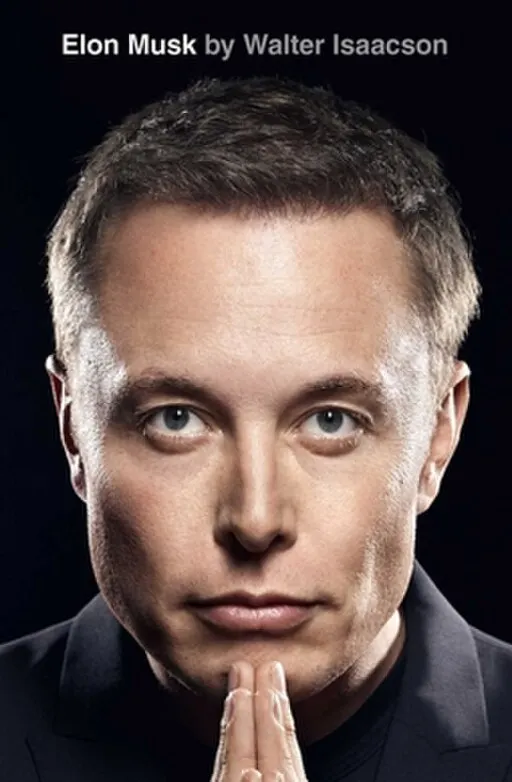
Elon Musk by Walter Isaacson is a gripping biography of one of the most ambitious and controversial innovators of our time. It explores his upbringing, leadership style, and the companies that have changed industries, from SpaceX to Tesla to Twitter. This book reveals the mind behind the mission, showing that Musk is not just a businessman, but a man determined to reshape the future of humanity.
Audio Note Option Comming Soon...
Walter Isaacson’s Elon Musk is a deeply researched and revealing biography that explores the life, mindset, and methods of one of the most controversial and influential entrepreneurs of the 21st century.
Known for his biographies of Leonardo da Vinci, Steve Jobs, and Albert Einstein, Isaacson brings the same depth to this book—offering readers an inside look at Musk’s upbringing, career, failures, successes, and the complex personality behind companies like Tesla, SpaceX, Neuralink, The Boring Company, and Twitter/X .
“Elon Musk is not just a tech entrepreneur—he is a force of nature.”
This summary walks you through the key insights from the book, offering a clear, engaging breakdown of Musk’s life, leadership style, and the lessons we can learn from his journey.
Elon Musk was born in Pretoria, South Africa, in 1971. From a young age, he displayed an intense curiosity and obsession with technology and science fiction.
Musk’s early years shaped his relentless drive:
“He learned to rely on himself—and to believe in big dreams.”
His motivation wasn’t money or prestige—it was solving humanity’s biggest challenges.
One of the central themes of the book is Musk’s grand vision thinking . Unlike many entrepreneurs who chase trends, Musk builds companies to solve existential problems:
“Musk doesn’t follow markets—he creates them.”
Isaacson highlights how Musk thinks differently than most leaders:
Key Insight: Musk believes in doing things that seem impossible—even if others call him crazy.
Musk is known for his brutal work ethic and demanding leadership style.
“If something matters, you do it yourself—or at least know everything about it.”
His leadership is polarizing:
Isaacson paints a picture of a leader who pushes everyone—including himself—to the limit.
Important Lesson: Great innovation requires great sacrifice—and Musk lives that truth every day.
Isaacson dives deep into how Musk funds and drives innovation:
Instead of copying others, Musk asks: What is the problem? What are the basic truths? How can we build from there?
This approach led to breakthroughs in reusable rockets and affordable electric vehicles.
Musk views failure as part of progress. He lost nearly all his money multiple times while building SpaceX and Tesla.
“If your goals are bold enough, you will fail often.”
He encourages engineers to “fail fast” and iterate constantly.
At both SpaceX and Tesla, Musk insisted on cutting costs dramatically—whether rethinking rocket design or battery production.
Key Insight: Musk isn’t afraid to challenge industry norms—even when it makes him enemies.
Despite his public image as a fearless innovator, Isaacson reveals Musk’s personal struggles:
Musk also faces criticism for:
“Elon Musk is not easy to be around—but he changes the world.”
His contradictions make him human—and fascinating.
Isaacson shows how Musk built companies that transformed industries:
Important Lesson: Musk’s companies are not just businesses—they’re missions to change humanity’s trajectory.
While focused on innovation, Musk often struggles with relationships:
Yet Isaacson shows that Musk does care—just not in traditional ways:
“Musk may not be warm, but he’s loyal to the mission.”
Throughout the book, Isaacson shares dramatic moments that reveal Musk’s decision-making under pressure:
Both SpaceX and Tesla were failing simultaneously. Musk used his last money to fund both—and came within days of collapse.
He made the deal impulsively, then struggled to manage the fallout. Still, he reshaped the company in his own image.
SpaceX engineers worked 20-hour days to land rockets upright—a goal many experts said was impossible.
These stories show that Musk’s success comes not from luck—but from relentless focus and execution .
Musk operates outside normal expectations:
“Most people avoid pain. Musk runs toward it.”
His mind is wired for disruption—often questioning assumptions others take for granted.
Key Insight: Musk’s greatest strength is also his greatest weakness—his refusal to compromise.
From the book, here are some of the strategies and habits Musk relies on:
“You don’t need permission to change the world—you just need to start.”
Walter Isaacson’s Elon Musk is not just a biography—it’s a masterclass in visionary leadership, resilience, and the cost of ambition .
It teaches that:
As Isaacson writes:
“Elon Musk is a man who could have lived a comfortable life but chose to risk everything for a future most people didn’t believe in.”